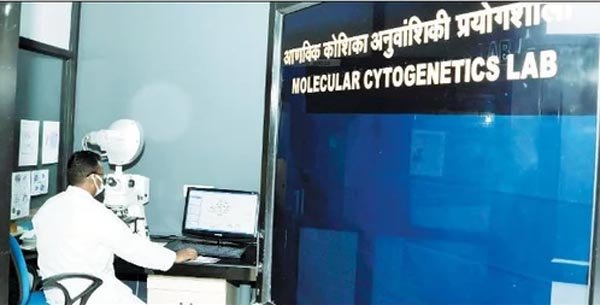- Gains scientific recognition
Bhopal, – In a major scientific milestone, Bhopal Memorial Hospital and Research Centre (BMHRC) has been inducted into the prestigious Indian Biodosimetry Network (IN-BioDoS). With this, BMHRC becomes the first and only institution in Central India to join the elite group of six labs across the country equipped to assess radiation exposure during emergencies.
BMHRC’s cytogenetic laboratory will now play a vital role in identifying the extent of radiation exposure in affected individuals, enabling accurate and timely medical treatment. This is especially crucial in emergencies such as nuclear accidents, radiation leaks in hospitals, or industrial mishaps.
Dr. Ravindra M. Samarth, Assistant Professor at BMHRC, explained that the lab analyzes blood samples to detect radiation-induced damage to chromosomes using techniques like the Dicentric Chromosome Assay (DCA) and Micronucleus Assay. These tests help determine the radiation dose received, which is key to beginning appropriate treatment.
Radiation is increasingly used in sectors like nuclear energy and medicine—particularly in cancer treatment. In the event of accidental overexposure, biodosimetry provides critical data to guide life-saving interventions.
Launched by Bhabha Atomic Research Centre (BARC), the IN-BioDoS network includes labs in Chennai, Delhi, Lucknow, Mangaluru, Kalpakkam, and now Bhopal. Together, these labs will strengthen India’s preparedness for radiation-related emergencies.
Dr. Manisha Srivastava, In-charge Director of BMHRC, called the inclusion “a matter of pride,” highlighting the lab’s scientific excellence and its potential to support the region during radiation crises.











